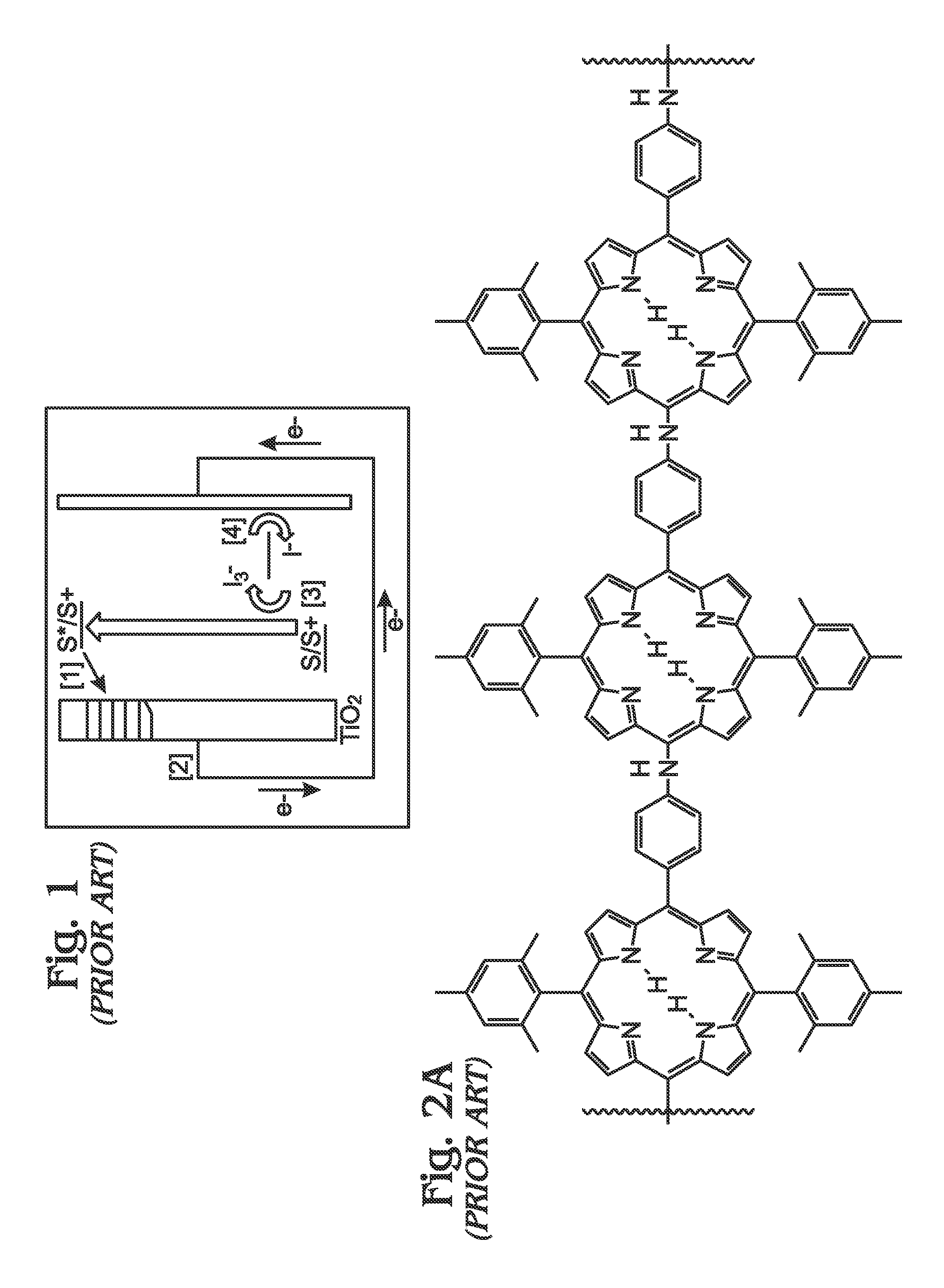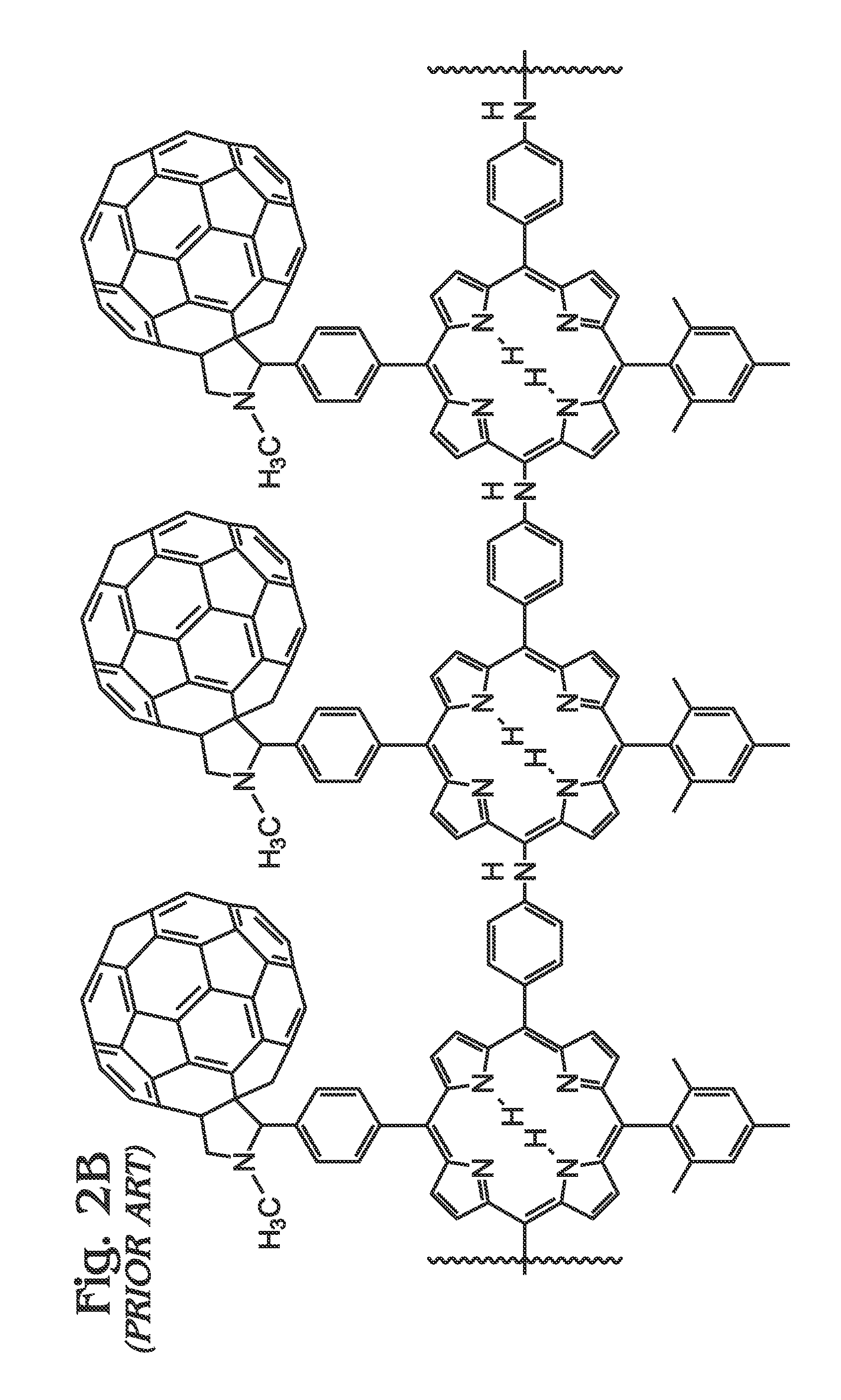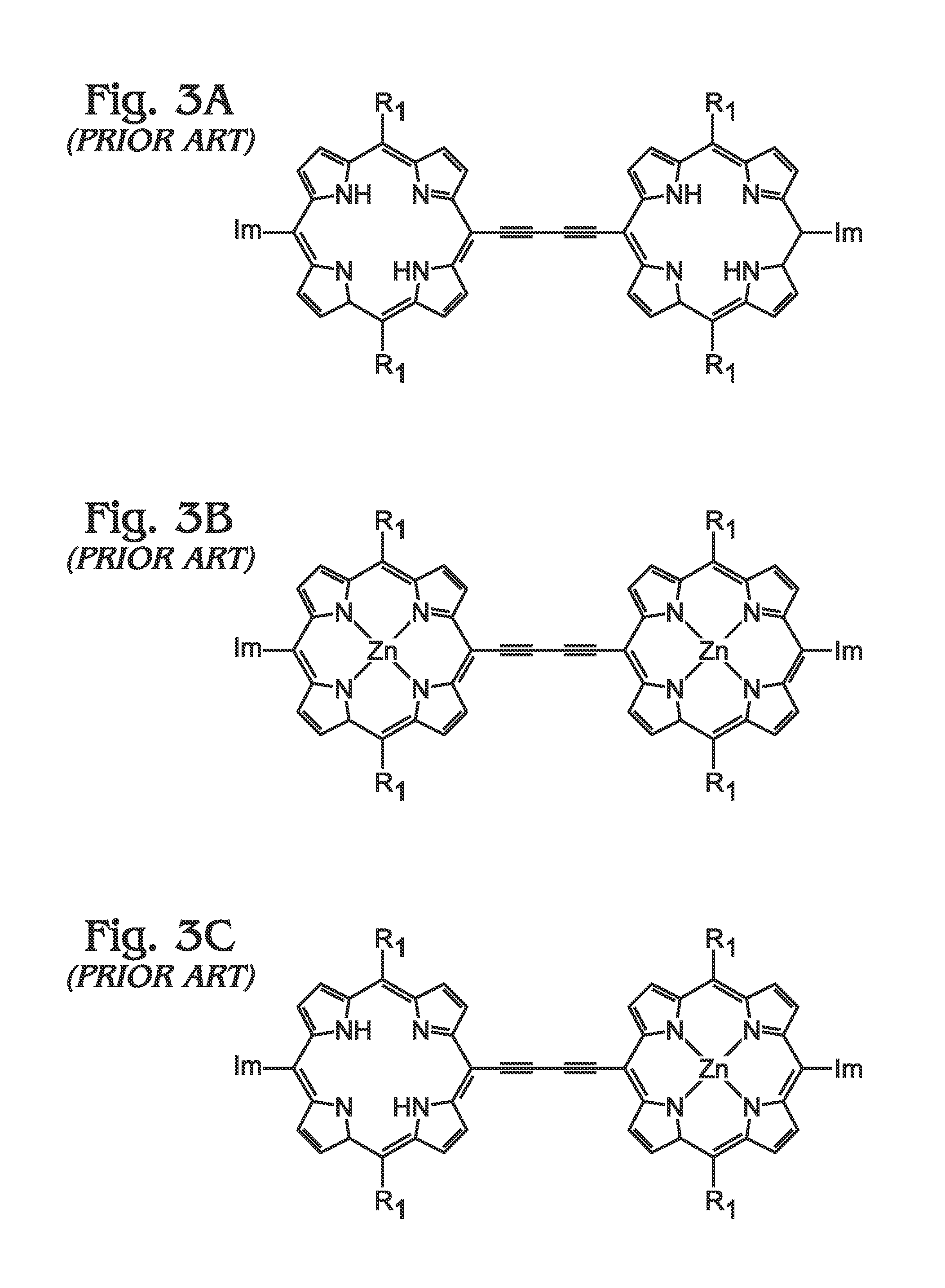Metalloporphyrin Polymer Functionalized Substrate
a technology of metalloporphyrin and functionalized substrates, applied in the direction of photovoltaic energy generation, electrical equipment, solid-state devices, etc., can solve the problems of time-consuming and challenging approaches
- Summary
- Abstract
- Description
- Claims
- Application Information
AI Technical Summary
Benefits of technology
Problems solved by technology
Method used
Image
Examples
Embodiment Construction
[0054]FIG. 4 is a schematic diagram depicting a metalloporphyrin polymer functionalized substrate. The metalloporphyrin polymer functionalized substrate 400 comprises a substrate 402 and linkers 404 comprising an anchor group 405 attached to a surface 407 of the substrate 402. The substrate 402 may be a material such as metal oxide, mixed-metal oxide, semiconductor, or metal. The substrate 402 has a morphology that is either a film or particles suspended in a matrix, independent of shape. In turn, the film may comprise individual particles. As defined herein, a “matrix” is a material into which a substrate can be suspended (contained), and includes one or more solvents, mixtures of solvents, surfactants, etc. As used herein, a “solvent” is a first substance that dissolves a second substance to form a homogenous solution. Alternatively, the solvent may serve as a solution phase for suspending a second substance, although the second substance does not necessarily dissolve within the s...
PUM
| Property | Measurement | Unit |
|---|---|---|
| wavelength range | aaaaa | aaaaa |
| temperatures | aaaaa | aaaaa |
| wavelengths | aaaaa | aaaaa |
Abstract
Description
Claims
Application Information
 Login to View More
Login to View More - R&D
- Intellectual Property
- Life Sciences
- Materials
- Tech Scout
- Unparalleled Data Quality
- Higher Quality Content
- 60% Fewer Hallucinations
Browse by: Latest US Patents, China's latest patents, Technical Efficacy Thesaurus, Application Domain, Technology Topic, Popular Technical Reports.
© 2025 PatSnap. All rights reserved.Legal|Privacy policy|Modern Slavery Act Transparency Statement|Sitemap|About US| Contact US: help@patsnap.com



